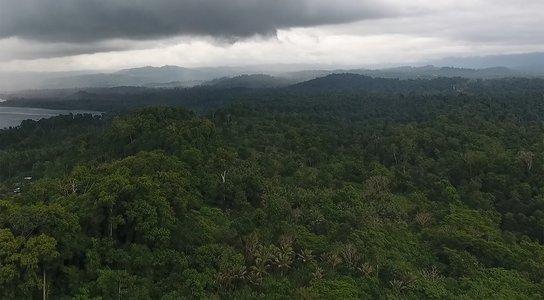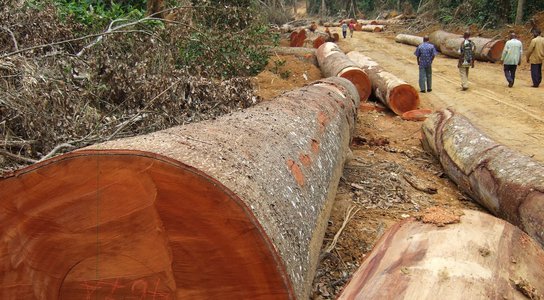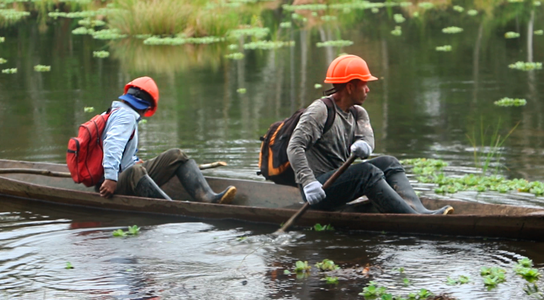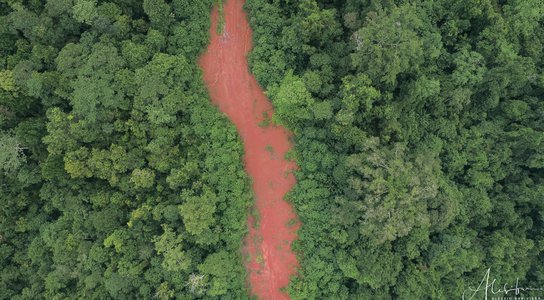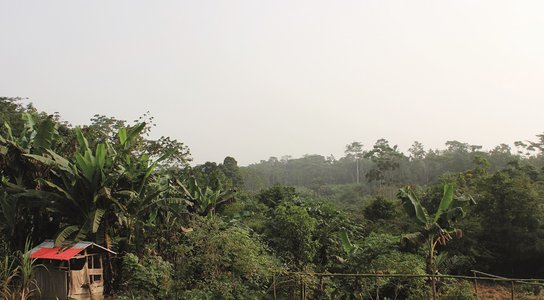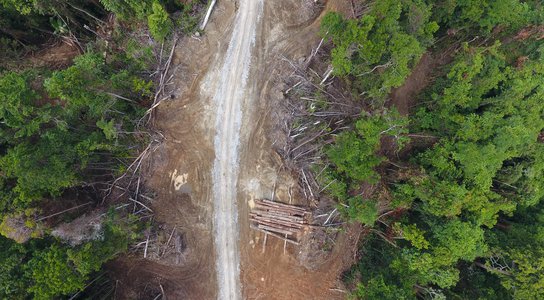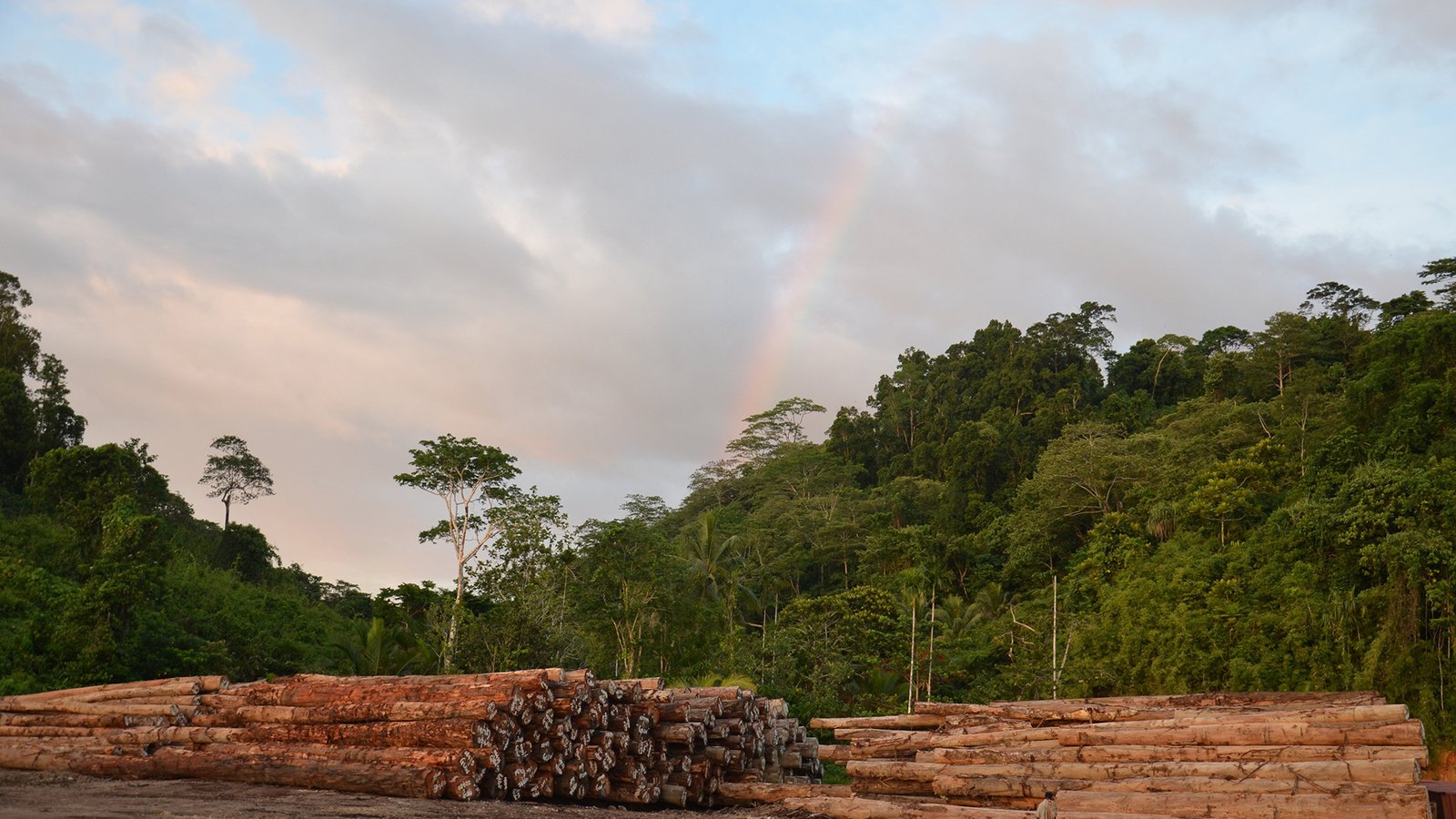Efforts to halt deforestation are pitched against powerful forces. Governments of forest-rich countries routinely flout their own rules on forest protection, striking secretive deals with companies for access to forested land. Often these companies are backed up by state or privately hired security forces.
These abuses don’t happen in isolation. They depend on international markets that accept products associated with deforestation, an international financial system that facilitates offshore transactions, and a global network of lawyers, accountants and PR firms that launder money and reputations. This cast of facilitators throws up some surprises too. The logging industry has received millions of dollars in aid money, having convinced donors that the dismantling of forests is good for development.
For decades, Global Witness has worked to expose the vested interests at the heart of the global forest economy and dispel its myths. Our exposés have long shown the toxic legacy of industrial forest clearance in
Peru,
Papua New Guinea, the
Democratic Republic of Congo and
Cambodia: ecosystems and communities are torn apart, traditional forest livelihoods vanish, and developing countries’ natural wealth is annexed to international investors and a corrupt elite.
We have long tackled the demand-side of deforestation, working to ensure rules are in place to keep tainted products out of our ports and off our shop floors. We campaigned hard for the introduction in 2013 of the
EU Timber Regulation and its effective enforcement, which makes the import of illegal timber into the EU a criminal offence. We are maintaining pressure on
China, the world’s biggest timber hub, to do the same.
In recent years, we have re-focussed our forests campaign towards stemming the supply of cash to irresponsible business driving deforestation in climate critical forests. As part of this work we are campaigning for the EU and UK to adopt legislation We continue to campaign for the EU to adopt legislation to identify, mitigate and prevent deforestation risks.

